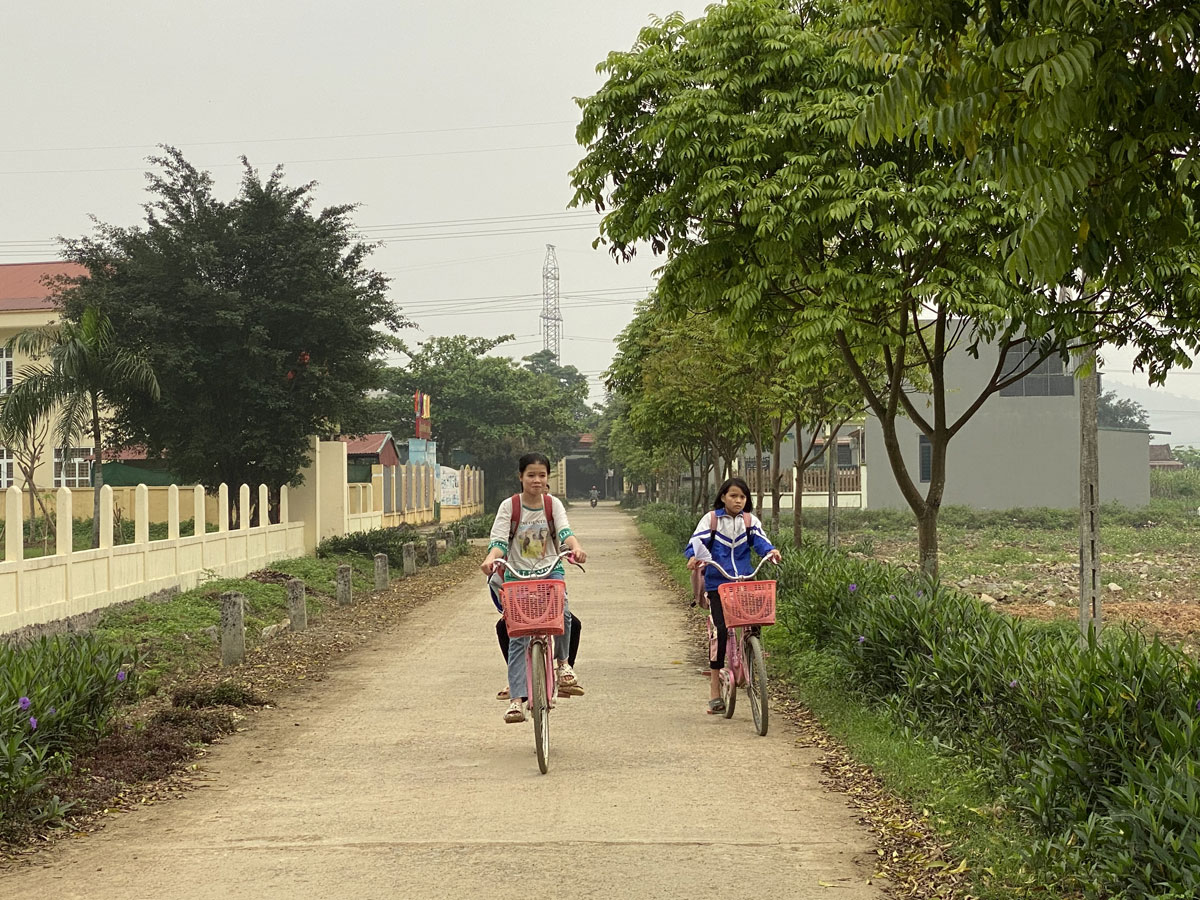
(HBO) - Building a civilised lifestyle is among major activities of an ongoing campaign of people in Yen Thuy district of Hoa Binh province, which is expected to contribute to meeting socio-economic development tasks and ensuring security-defence.
 A self-managed road gives a facelift to Ha hamlet in Phu Lai commune
(Yen Thuy district).
A self-managed road gives a facelift to Ha hamlet in Phu Lai commune
(Yen Thuy district).
After a day of hard
work, people of Sau, Dinh, Trac and Thuong residential areas in Lac Thinh
commune gather at cultural houses in the afternoon to practice sports in a bid
to improve physical health. It is also a form of recreation activity.
Among youngsters, some
are keen on playing volleyball, while others favour football. Dynamic sporting
and cultural activities have become a demand which help build a civilised
lifestyle.
In the 2016-20, Hang
Tram township and the communes of Yen Tri, Ngoc Luong, and Lac Luong are
leading localities in building such way of life, creating a living environment
of order and discipline.
Tran Trung Kien, head
of the district’s culture and sport office said that along with building a
civilised lifestyle, many ancient local rules are removed, thereby reducing unsound
customs. Agencies work together
in the holding of festivals to ensure cultural values and meet people demand in
joining group and spiritual activities.
The building of a
civilised lifestyle has promoted a similar campaign of building civilised
families and residential areas. In 2020, the ratio of civilised households of
the district reached 84.86 percent. Yen Thuy is now home
to more than 100 art teams at grassroots level and 80 sporting clubs.
With an increasingly vibrant and widespread emulation movement aimed at building cultured residential areas and cultured families, Yen Thuy District has been making steady progress toward improving both the material and spiritual well-being of its people, while fostering a civilized, prosperous, beautiful, and progressive community.
Once lacking recreational spaces and community facilities, Residential Group 2 in Quynh Lam Ward (Hoa Binh City) has recently received attention for the construction of a new, spacious, and fully equipped cultural house. The project followed the model of state support combined with public contributions in both labor and funding.
The "All people unite to build cultural life" movement, which has been effectively integrated with Kim Boi district’s socio-economic development goals, is fostering a lively spirit of emulation across local residential areas, hamlets, villages, public agencies, and enterprises. In addition, through the initiative, traditional cultural values are being preserved and promoted, while community solidarity and mutual support in poverty reduction and economic development are being strengthened.
A working delegation of the Hoa Binh provincial People’s Committee led by its Permanent Vice Chairman Nguyen Van Toan on June 11 inspected the progress of a project to build the Mo Muong Cultural Heritage Conservation Space linked to tourism services in Hop Phong commune, Cao Phong district.
Born and growing in the heroic land of Muong Dong, Dinh Thi Kieu Dung, a resident in Bo town of Kim Boi district, in her childhood was nurtured by the sweet lullabies of her grandmother and mother. These melodies deeply imprinted on her soul, becoming an inseparable part of her love for her ethnic group's culture. For over 20 years, this love for her hometown has driven Dung to research, collect, and pass down the cultural values of the Muong people to future generations.
In the final days of May, the Ethnic Art Troupe of Hoa Binh Province organized performances to serve the people in remote, mountainous, and particularly disadvantaged areas within the province. These were not just ordinary artistic shows, but they were the meaningful journeys aimed at spreading cultural values, enhancing the spiritual life of the people and contributing to the preservation of ethnic minority cultural identities.



 A self-managed road gives a facelift to Ha hamlet in Phu Lai commune
(Yen Thuy district).
A self-managed road gives a facelift to Ha hamlet in Phu Lai commune
(Yen Thuy district).